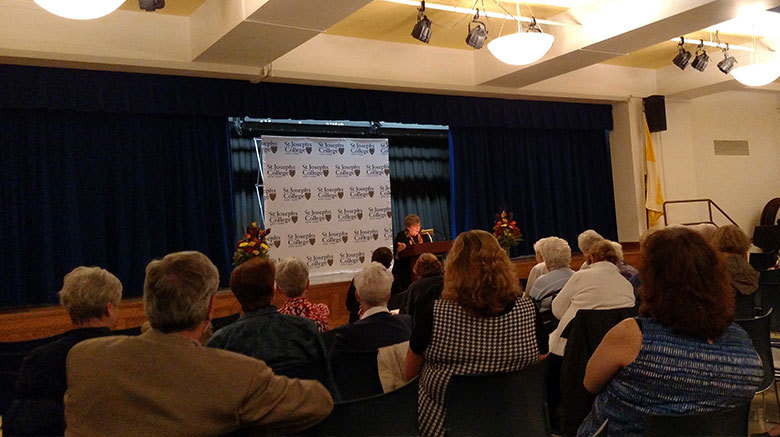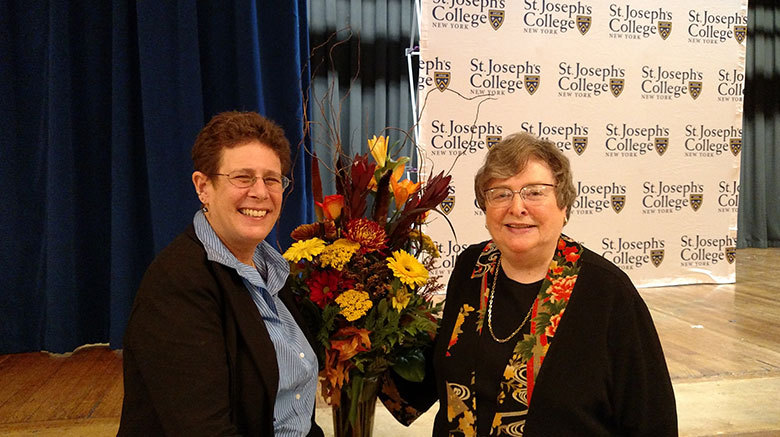Creation is not a scientific word, but a religious one. Nature as an extension of God. When so much emphasis is put on God’s teachings — the importance of following his Gospel — why have so few stepped forward to preserve the Earth? His greatest creation?
This was the focal point of SJC’s 2016 Founders Day lecture, “From Triangle to Circle: Human Identity as an Ecological Challenge,” delivered by S. Elizabeth Johnson, C.S.J., Ph.D.
“If you think about the Bible, it starts with the great act of creation,” S. Elizabeth said. “And every Christian who goes to mass on Sunday states the Nicene Creed, which starts with a confession in the belief of God, the maker of heaven and earth — everything visible and invisible.”
A Climate in Need of Change
Though eco-awareness is on the rise, Earth continues to suffer at a catastrophic rate.
Carbon dioxide levels recently reached a frightening high, fueling climate change and making “the planet more dangerous and inhospitable for future generations,” the World Meteorological Organization reported this week.
For the first time ever, bees have been added to the U.S. endangered species list. This could have major implications for world food supply, considering about 75 percent of the world’s food crops depend at least party on pollination.
S. Elizabeth said the root of the problem lays with the all-too human predilection of placing animals and nature on a lower level than ourselves – disregarding the needs of creation in the process.
“Picture yourselves not as a separate species, but as part of ‘one splendid universal community of life,'” S. Elizabeth said, citing Pope Francis’ 2015 encyclical, Laudato si’.

S. Elizabeth Johnson, C.S.J., Ph.D., delivers the 2016 Founders Day Lecture, “From Triangle to Circle”
Descending From the Apex
S. Elizabeth revisited the notion that, when compared to other living things, humans are typically placed atop a triangle — at the apex with God’s creation below. She urged those in attendance to consider creation equally valuable as human life. Not a triangle with us atop it, but rather a circle with us included. “Think Lion King,” S. Elizabeth added with a smile.
S. Elizabeth championed contemplation, asceticism and political action as three spiritual practices that can move us off the apex of the triangle, and convert us to the circle of life.
“And I offer this reflection not so much in the hope that you will agree with everything that I say,” S. Elizabeth said, “as in the hope that it will stimulate your own thinking about the meaning of yourself as a human being amid all the rest of creation now under threat. And move all of us to take meaningful action for the world’s care.”
The scientist Stephen Jay Gould once said, “We will not fight to save what we do not love.”
“The task is daunting, but everyone can start by doing a little bit right where we live,” S. Elizabeth said. “We haven’t a moment to lose.”

